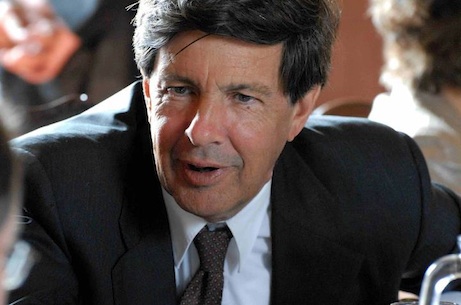
Educational philanthropy is now a core part of university funding, but universities need to actively seek out philanthropists who will allow them total freedom over how they use the money, according to the Provost of the Gates Cambridge Trust.
Educational philanthropy is now a core part of university funding, but universities need to actively seek out philanthropists who will allow them total freedom over how they use the money, according to the Provost of the Gates Cambridge Trust.
In a film released by Blue Skies magazine, Professor Robert Lethbridge says the media has underplayed the consequences of rising tuition fees on access, particularly with regard to postgraduate education. He says there is a common perception that postgraduates are “eternal students” rather than absolutely vital for the UK’s knowledge economy.
A major exception in that debate, he adds, is “the extraordinarily generous gift” from the Bill and Melinda Gates Foundation of $210m for postgraduate study at the University of Cambridge. “It remains the largest ever donation to a UK university,” he states.
One of the most important elements of it is that it respects the University’s freedom to decide how best to push forward the boundaries of knowledge. To date, the Gates Cambridge Trust has awarded over 1,000 Scholarships to citizens of over 90 countries in every discipline offered by the University. .
Professor Lethbridge says that this freedom recognises that to make progress in areas such as global health or technology a wider understanding of culture and society is necessary.
“UK universities need to urgently find philanthropists to follow the Gates Cambridge example,” says Professor Lethbridge, adding that educational philanthropy is at a turning point.
“The Government is not able to support research in many fields which are vital to our modern society,” he adds. “Philanthropy is becoming not simply an extra but a necessary income stream for funding core activities.” Given total freedom over how they use philanthropic funding, universities can maintain the UK’s pre-eminence in higher education, he states.
“Philanthropy has to give universities the freedom to explore the boundaries of knowledge without any government or commercial agenda.”












